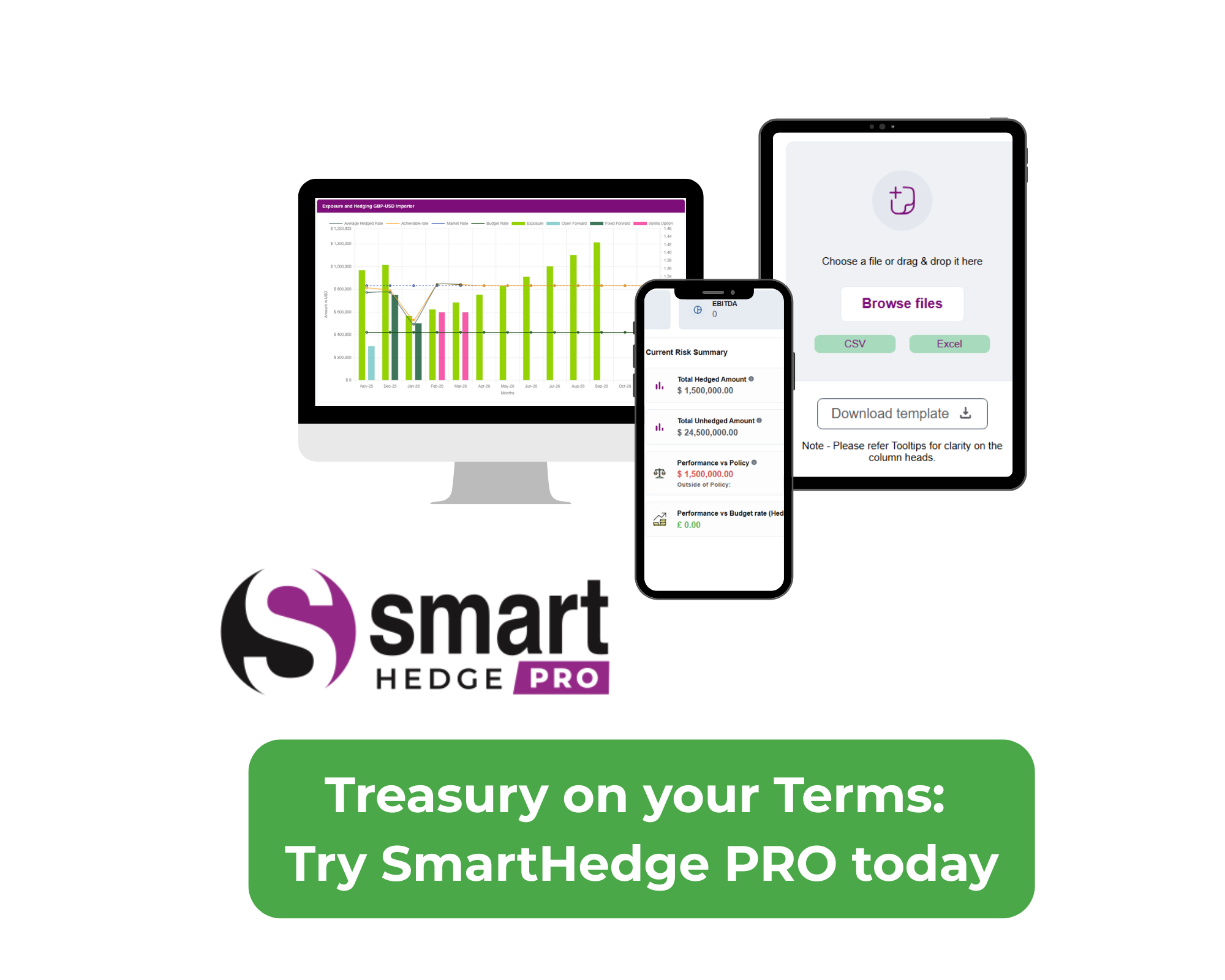
Currency options are more sophisticated and flexible than standard FX products.
Last updated: 25 November 2025
Foreign Exchange (FX) contracts come in many shapes and sizes. The simplest (and coincidentally, most common) types include forward contracts, which serve to secure a specified exchange rate for a defined date in the future. FX options are an altogether more sophisticated product.
Due to their complexity and technical fine points, currency options may not be top of the agenda for every business. But when used right, there is no doubt that they can be transformational when it comes to protecting key financial criteria such as cashflow and net profits.
Table of contents
- What is an FX option?
- What is the difference between an option and a forward contract?
- How do FX options work?
- What type of options contracts are available?
- Why do businesses use FX options?
- How do I hedge currency risk with options?
What is an FX option?
Options allow you to exchange money from one currency into another at a specific date in the future. With currency options, you retain the right (but not the obligation) to execute the trade, hence the name. The simplest type of options product listed above is commonly know as a vanilla option.
Options range from relatively simple to complex derivative products. With the right provider, treasury teams can combine options products, building comprehensive hedging strategies that insulate their bottom line from currency risk. Foreign exchange options are another way to mitigate risk when navigating the world of currency.
What is the difference between an option and a forward contract?
Forward contracts require money to be exchanged from one currency to another at a specified date and exchange rate. Most options don’t carry the obligation to fulfil your end of a contract when doing so would put you at a disadvantage.
The interactive element below provides a overview of the opportunity cost of the two products. Have a play around with it by editing the text fields – would your business benefit from a more flexible hedging solution?
How do FX options work?
Currency options typically harness market dynamics to shield your budget and put you at an advantage in certain scenarios. They provide a buffer against unforeseen circumstances by inserting variables into your hedging. Think of it like an equation: if x is greater than y, then z.
What type of options contracts are available?
Vanilla options are an agreement between two parties that gives the buyer of the option the right, but not the obligation, to buy or sell one currency in exchange for another at an agreed exchange rate on a predetermined date. The buyer can choose to transact at the “strike rate” (i.e. the pre-determined) or allow the contract to expire.
Collar options resemble vanilla options with one crucial difference. Rather than giving you a choice to exercise your right to trade, collar options ensure you’ll pay either a best-case or a worst-case rate, dependent on prevailing market conditions.
Participating forward products provide a protected (or guaranteed) rate, while still allowing beneficial moves on a predetermined portion of the amount hedged. This means that if the spot price is favourable, they are only required to transact the specified portion of the contract at the protected rate. They are free to trade the remainder of the contract at the spot value.
A Forward extra provides a protected rate but allows the bearer of the contract to benefit from favourable movements up to a pre-determined cap.
Non-deliverable forwards are almost identical to forward contracts. However, instead of delivering the currency at the end of the contract, the difference between the NDF rate and the fixing rate is settled in cash between the two parties. This is useful when dealing with non-convertible currencies or currencies with trading restrictions.
Why do businesses use FX options?
Business choose options to manage currency risk with greater accuracy. Standard products like forward contracts can be useful, but often, wide-ranging exposures mean British companies are exposed to more complex challenges.
For many businesses, the risk of minimal. Yes, you might be on the hook for the contract premium, but that is generally a drop in the ocean compared to the upside should the market move in your favour.
How do I hedge currency risk with options?
If you’d like to learn more about options and their applications for your business, please do have a leaf through our options hub. You’ll find detailed information there as well as handy visualisations and product breakdowns.
If you’d like to start hedging with options, register with Smart Currency Business today. Alternatively, request a quote and a member of our team will be in touch to discuss how we can help protect your cashflow and profits.

 020 7898 0500
020 7898 0500